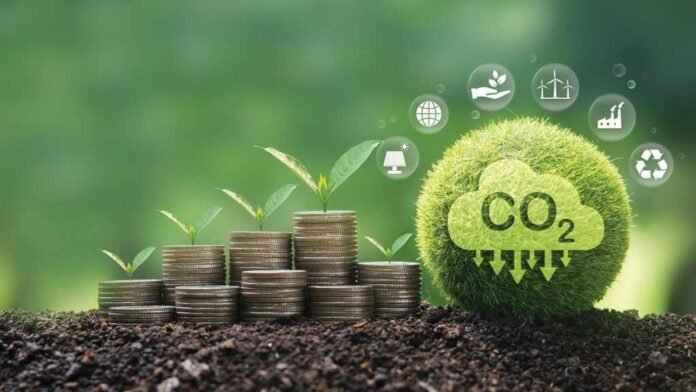Carbon credits, conceived by the Kyoto Protocol in 1997, are an essential tool for reducing greenhouse gases and mitigating climate change. These credits are essential components of a flexibilization mechanism designed to help countries achieve their pollutant emission reduction targets. Considered the “currency” of the carbon market, credits represent the non-emission of carbon dioxide into the atmosphere.
The logic is simple: for every ton of emissions avoided, a carbon credit is generated. Thus, when a country is successful in reducing emissions, it receives Clean Development Mechanism (CDM) certification and acquires credits available for commercial transactions with nations that have not achieved their targets.
How does the sale work?
The carbon credit market is based on carbon emissions trading and the workings of the Clean Development Mechanism (CDM). Projects approved by the CDM result in the generation of Certified Emission Reductions (CERs), which can be traded with companies, industries or countries that have not achieved their CO2 reduction targets.
The regulation of the carbon market is established by specific legislation in each country. Essentially, the carbon market involves the sale of carbon credits, where a country, after reducing its carbon dioxide emissions, trades with another country that needs to meet its reduction targets but has not yet achieved them. This process creates.
In 2018, Mozambique adopted national regulations for projects to Reduce Emissions from Deforestation, Forest Degradation and Increase Carbon Reserves (REDD+), a mechanism that recognizes the role of forests in mitigating the effect of climate change, as well as the need to compensate contributing countries through measures that promote forest conservation. In addition, Mozambique has become a member of the African Carbon Markets Initiative and has begun drafting a Carbon Market Activation Plan, with a working group prioritizing the production of a comprehensive and conducive regulatory framework.
Who can sell carbon credits?
Any company with emission reduction projects and small rural producers can generate and market their carbon credits.
What is Mozambique’s potential for generating carbon credits?
Mozambique has around 45 million carbon credits ready to be traded. The Mozambican Minister of Land and Environment, Ivete Maibaze, said three months before Mozambique’s First Preparation Meeting for its participation in COP28 that the amount can be negotiated with all interested parties. “The survey carried out by our teams shows that we have around 45 million carbon credits available to be negotiated with all interested parties to complement the agenda for marketing the product,” she said. He explained that in order to exploit the potential of the carbon market. Some companies and governments offer carbon offset programs, where individuals can buy carbon credits to offset their own emissions. Participating in these programs can be a simple and straightforward way to contribute to reducing emissions and possibly get some financial return. In short, the carbon credit market offers a number of earning opportunities for those who are willing to invest time and resources in projects and strategies aimed at reducing greenhouse gas emissions. With the growing concern about climate change, it is a market that tends to expand and offer more and more business opportunities.
Notes: forms of participation:
Participation in emission reduction projects: One of the direct ways to earn money on the carbon credit market is to participate in emission reduction projects. This can involve anything from implementing more efficient technologies to preserving forests. By generating carbon credits from these projects, it is possible to sell them on the market, making a profit from the difference between the cost of implementation and the sale value of the credits.
Buying and selling carbon credits: Another way to profit from the carbon credit market is to buy and sell these credits. You can buy credits from certified projects at a lower price and sell them to companies that need to offset their emissions at a higher price, profiting from the difference.
Investing in renewable energy companies: Investing in companies operating in the renewable energy sector is a quick way to make money on the carbon market. These companies generally generate carbon credits from their operations and can share part of this profit with investors.
Carbon credit consultancy: Consulting services for companies wishing to better understand the market and implement emission reduction strategies is a field that allows active participation in this business.
Carbon offset programs: Some companies and governments offer carbon offset programs, where individuals can buy carbon credits to offset their own emissions. Participating in these programs can be a simple and straightforward way to contribute to reducing emissions and possibly get some financial return. It can be said that, with the growing concern about climate change, the market is tending to expand and offer more and more business opportunities.




